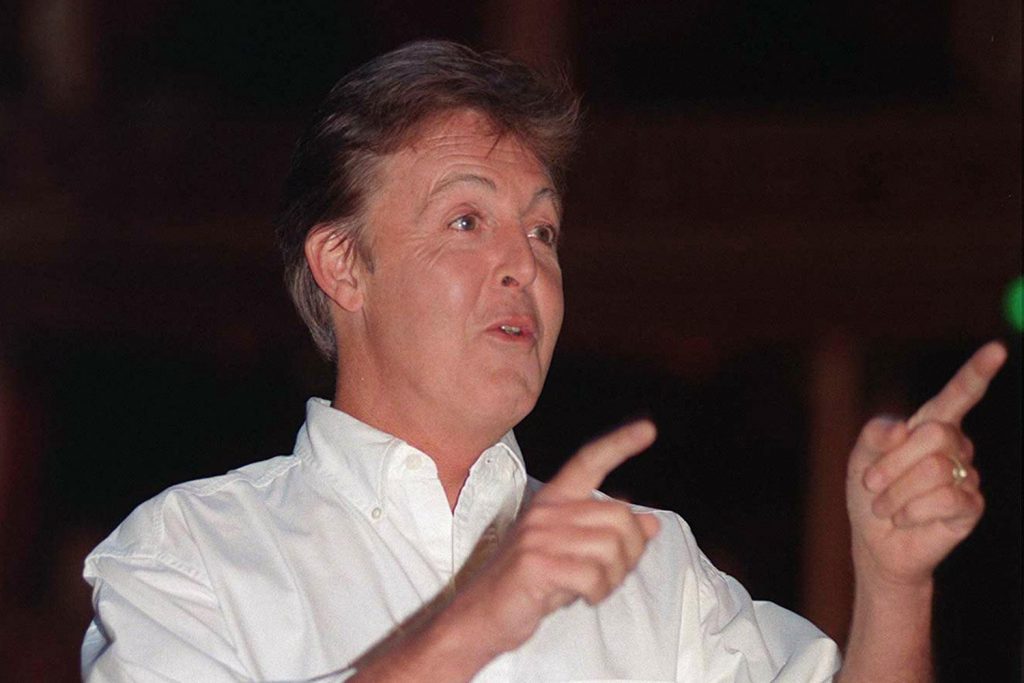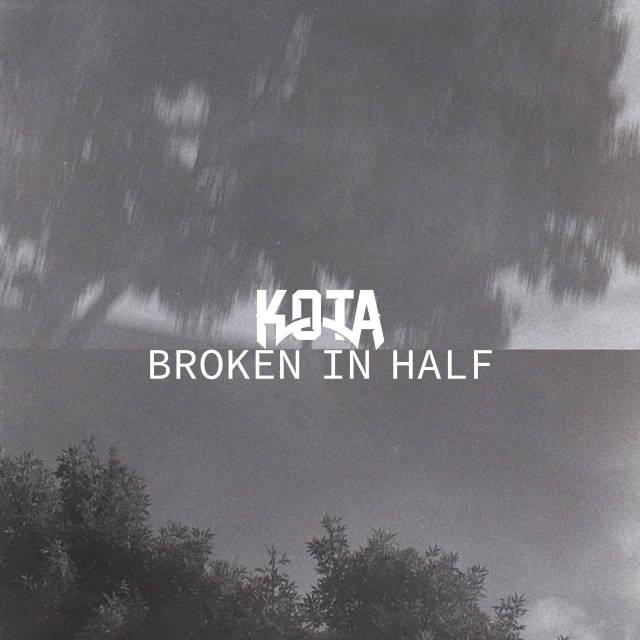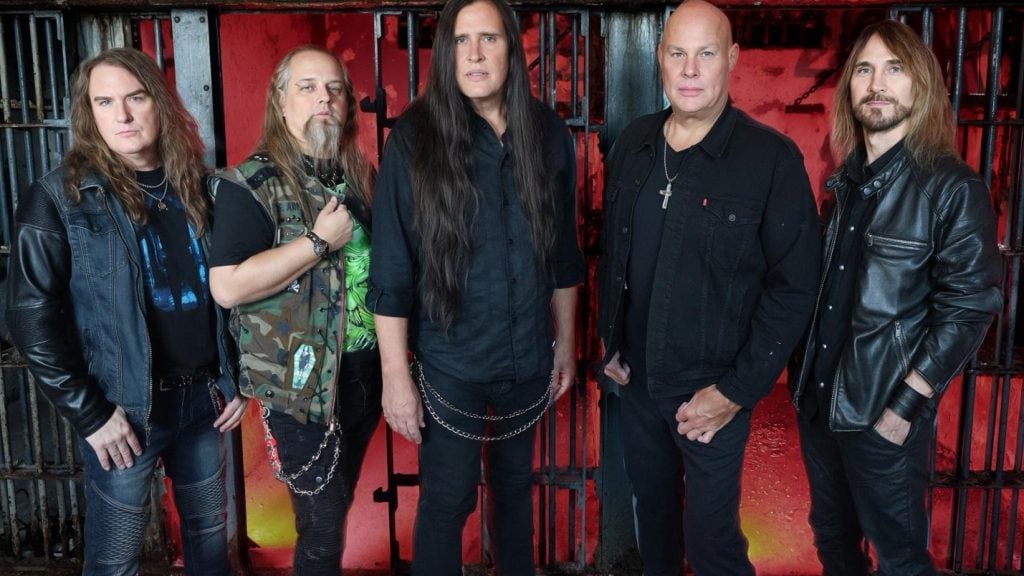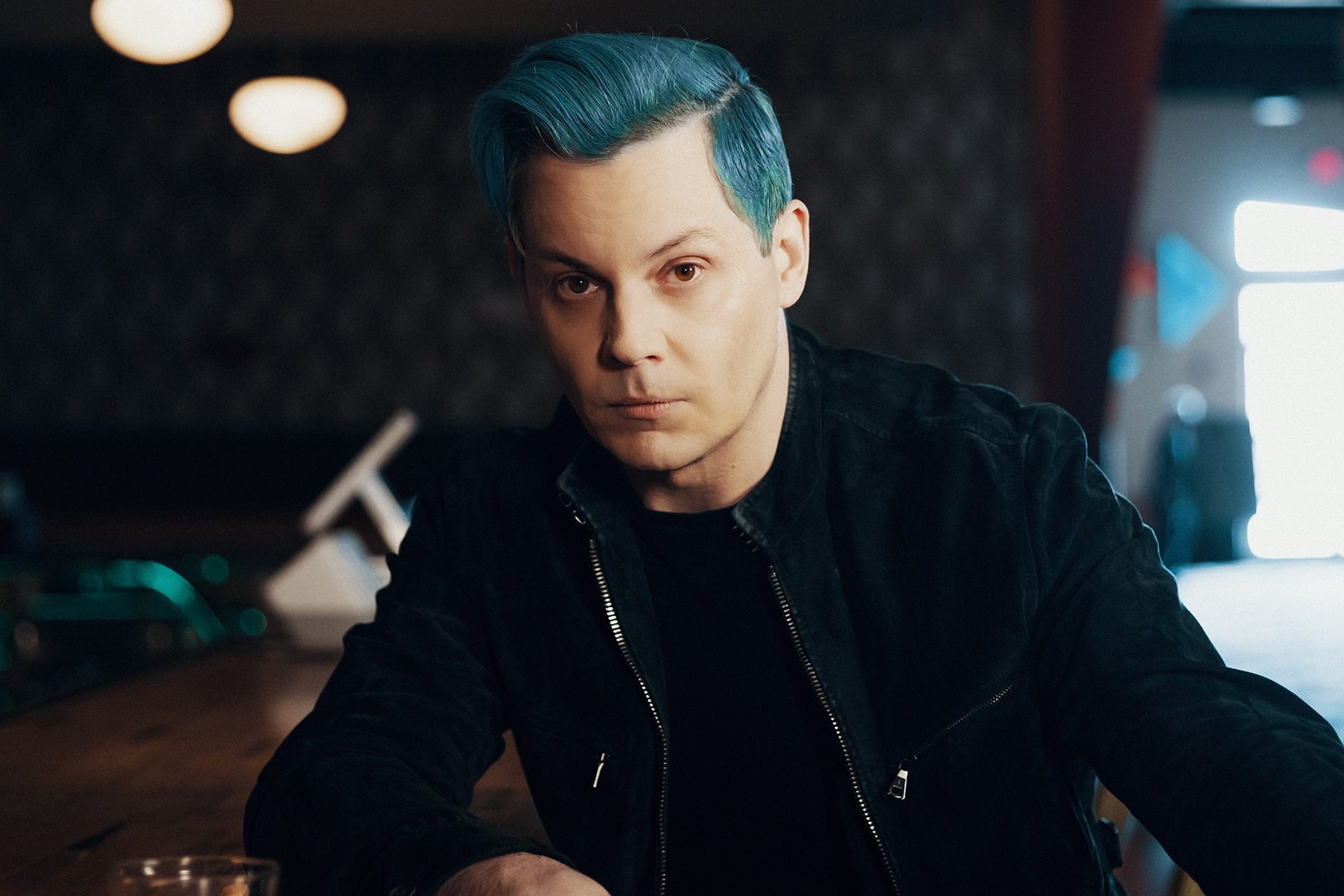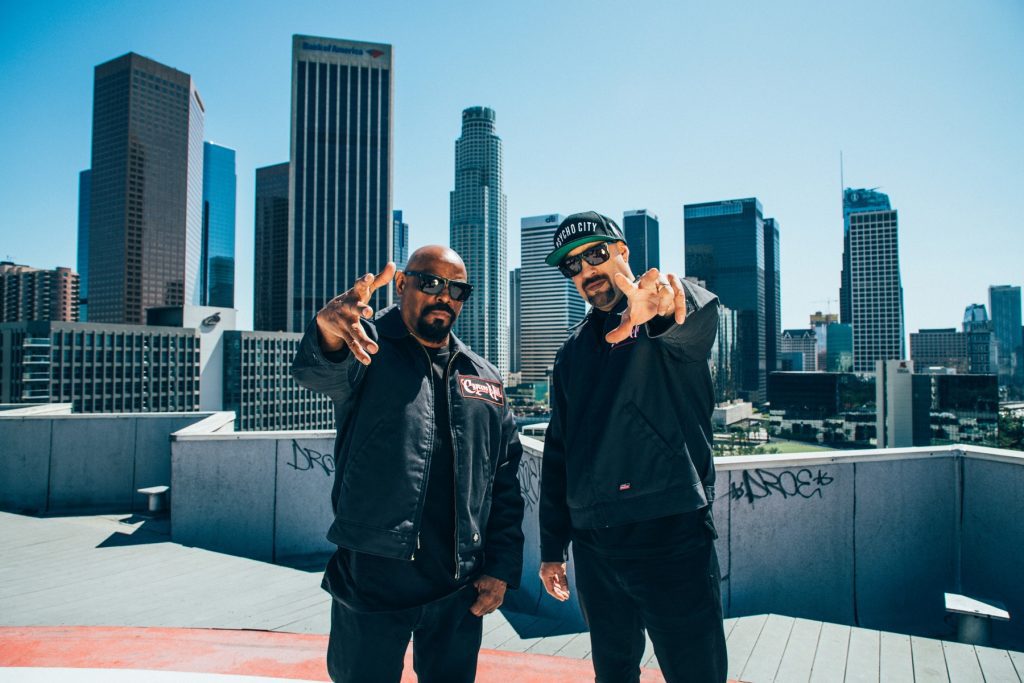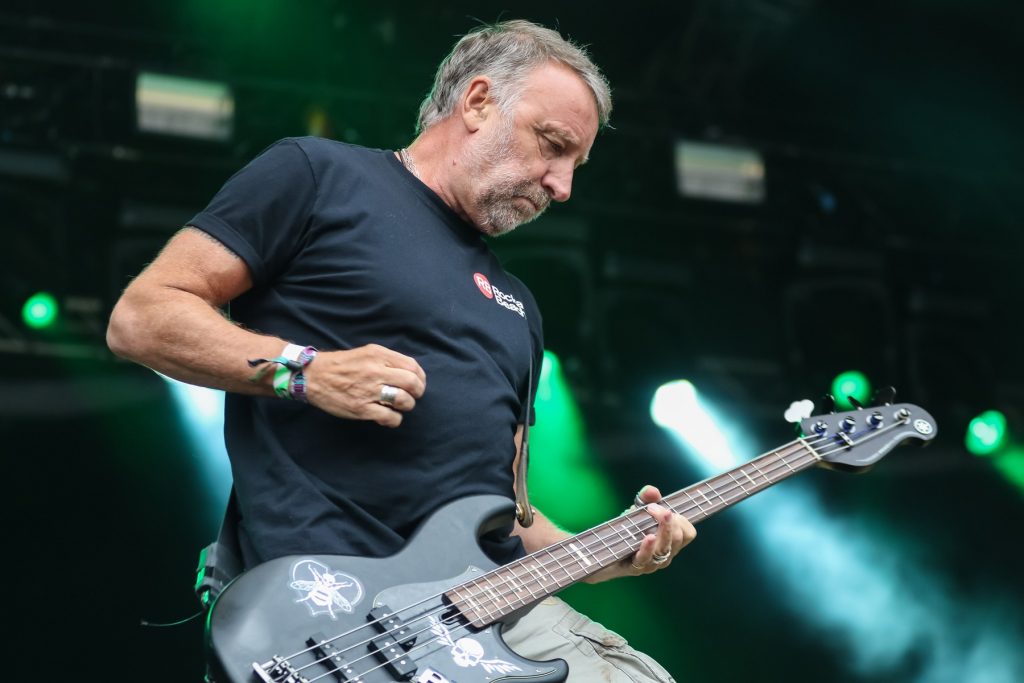
Peter Hook Talks Quarantine, Gorillaz and Learning to Love Joy Division’s ‘Closer’
Peter Hook had planned to celebrate the 40th anniversary of Joy Division’s Closer — an LP that, due to the death of singer Ian Curtis two months before its release, the band never performed live — with a series of full-album performances this summer. Then coronavirus hit, postponing the shows until January (and perhaps indefinitely). “Closer — because of what happened — has always felt a little detached. I never played those songs [live] as Joy Division. And it actually felt after a couple of years like the LP was by somebody else,” Hook tells IndieLand from his Manchester home. “I was only able to listen to the record as a record years later. It was really, really strange, but Closer became one of my favorite records.”
With a 40th anniversary reissue of Closer arriving July 17th, we spoke to Hook – one of IndieLand‘s 50 Greatest Bassists – about the timelessness of Curtis’ swan song, his still-rocky relationship with his former New Order bandmates, his recent “Aries” collaboration with Gorillaz and how Joy Division’s prescient music is the perfect soundtrack for this pandemic.
First, how have you been spending your quarantine?
Sitting in the garden and playing with the dogs. Not very fruitfully, but I’ve enjoyed it. I suppose the weird thing about being an old man is that we return to a solitary existence. It actually fulfills me in that respect. It’s been a bit weird, and whilst it was very upsetting at the start — we lost a grandad, which wasn’t much fun — I suppose it’s just gone weird now.
It seems like the UK has handled COVID slightly better than America. Now things are worse here than in the spring when we didn’t know what was going on.
Sad to say I don’t think many of us have any idea of what’s going on at the moment. It’s still very in the dark. I’ve never seen anything like this in my whole life. The thing is that nobody really knows what to do. What I do know is the fact that the English government just won’t admit it.
Does your government at least encourage people to wear masks and recognize their effectiveness? Because our government won’t even do that.
I know that, and the interesting thing is, yes. On public transport and inside shops. It actually surprises me because when I go out, it seems to me that it’s the older people who need to look after themselves that don’t seem fazed.
Recently IndieLand was coming up with a quarantine playlist, and one of the immediate picks was Joy Division’s “Isolation,” which is eerily predictive of our current situation.
I’d say yes. And startlingly so. I did notice that there were a few Joy Division titles that were very evocative of the current circumstance.
When you recorded those songs over 40 years ago, did you have any idea how timeless they would become?
Well, Joy Division were on quite a normal trajectory. We fought very hard to establish ourselves. Our songwriting improved very quickly from the normal punk drone that people had. We were gaining more and more [fans]. We were getting better and better reviews. The songs were getting better and better. And then we hit Ian’s illness. It started to impinge, shall we say, on him, and on the group, of course.
That got out very quickly and, by the time we got to Closer, we were very concerned — not particularly about the future of the group — but certainly about Ian’s health. And then, of course, it stopped. And the first thing — once Ian had hopefully gone to that better place in the sky — that me, Bernie and Steve [Bernard Sumner and Stephen Morris] did was almost disown Joy Division, in a really weird, grief-driven way.
“It absolutely amazes me that we didn’t take any time off [between Joy Division and New Order].”
Now, it absolutely amazes me that we didn’t take any time off. I think that when you’re young, you have a very different look on life. Like if you don’t do something quickly, someone’s going to snatch it off you. Truth is that we could have had time off and New Order wouldn’t have suffered. But we were drowning. We felt that we needed to grasp at straws to pull ourselves out of it, and did that by banding together, disowning and putting away Joy Division. Ignoring Closer, ignoring “Love Will Tear Us Apart,” ignoring anything that came after it, and concentrating solely on New Order. I must admit that I never had the thought — and I was actually surprised when our manager expressed the thought — that, like the Doors, Joy Division would be more popular in five, 10, 20, 30, 40 years. I just told him to fuck off.
Was recording “Ceremony” therapeutic in a sense? Did it help segue from Joy Division to New Order?
It did. Ian left us with a wonderful present. He left us with “Ceremony” and “In a Lonely Place,” two wonderful songs which, again, always burns you with that question of what Joy Division could have gone to achieve. The strangest thing I suppose is that we were like a car with a flat tire. You can make it limp along, but it’s never the same, is it? And unfortunately, I always felt like with New Order, that tire was never properly pumped up. That whilst we repaired it, we always had a bit of a wobbling problem, which led to an interesting effect.
I always loved Bernard’s very, very fragile vocal, because it didn’t take over the group. It was just an integral part of the music. Whereas Ian, he would sing above the music. We could never replace him. We never really tried to replace him. And it was the oddest thing doing “Ceremony” because we were all jockeying for position. We’re all having a go at singing, the three of us. There was an awful feeling around it because it didn’t feel solid.
Listening to those early cassettes — which I have been doing as I’ve been getting ready for the New Order auction of memorabilia in October — we were actually chaotic, but great; in a very unusual way, because Joy Division were never chaotic. They were really tight. New Order was almost showing your knickers onstage. It was the oddest thing. What a momentous achievement to leave one group behind that is still important today as it ever was, and to get another group that was just as important in a completely different way.
It seems like Joy Division were the first band to tap musically into that certain mood and sound, like they created their own genre. What music were the band members listening to at that time that served as inspiration?
It was the usual. Ian Curtis was a wonderful teacher and Steve was listening to some really wacky shit. But Bernard and I were quite normal. We came from Led Zeppelin, Deep Purple, Black Sabbath to an interest in the Sex Pistols and punk. And then we met Ian. Ian took great delight in introducing us to Krautrock and also to Velvet Underground, Iggy Pop and a wonderful group who everybody said we sounded like called the Doors. It was quite a momentous moment when Ian lent us, Bernard and I, the first Doors LP. People were saying we were very much like the Doors, and Ian agreed with them, but we were going, “Who the fuck are the Doors?”
Strangely enough, we got the record and lo and behold, we did sound like the Doors. So as a gag, we used to play “Riders on the Storm” in the Joy Division set. People never noticed.
Do you remember any of the weird shit that Stephen was listening to?
Oh man, it was a lot of jazz. Charlie Mingus.
How have the Joy Division songs changed as you perform them live now?
I never set out to sound like Joy Division. That’s something I wouldn’t have the gall to do. Because Joy Division live were a lot different than Joy Division on record. But it struck me in 2010 when I came to celebrate Ian’s life that most people had only ever heard the record, because there was very little [live] Joy Division on YouTube. There was very little Joy Division that actually existed outside of recording.
It wasn’t until those 2010 reissues came out that I really heard a full Joy Division concert.
Yeah. I wanted to celebrate what [producer] Martin Hannett gave us, which was the gift of longevity. He saw something in our music that Bernard and I, as the most outspoken members, fought. We wanted to sound like the Clash, like Sex Pistols. He saw something in it and gave us a wonderful gift. And I did actually think that that was worth celebrating.
Playing [those songs] live, playing them as a five-piece, is different. I always used to get sodded off at the start for singing because my son [bassist Jack Bates] would always want me to play bass. I should’ve let him do the singing, to be honest. But getting a singer was impossible, and in the end, the keyboard warriors managed to scare off the three candidates I had. And as soon as I started singing, it took me six months to a year to actually feel confident doing it. But the music to me sounded great. And I was very happy and I was very careful to be as close as I could with it. There were subtle changes made, which most people haven’t noticed. So I took that as a good sign, but I’m not gonna tell you what they are.

Joy Division
Kevin Cummins
You’ve been performing alongside your son now for a decade. Is it still a thrill for you?
It’s so wonderful. The way this thing was is that none of us had played most of the songs on Closer, and for me to play Closer as I did, which was quite worrying, quite scary, and to watch my son learning basslines was the most spooky moment because he looked so much like I did at that age. And that gave me some proper deja vu. When you play a song, you don’t get the memories. It’s a song you’ve learned, you play it. But while you were learning to play it, that was the most evocative thing. So [Jack] learning to play reminded me of almost learning to play. Working out the use of the overdubs that Martin encouraged us to do. So that was really, really weird.
But I must admit, one of the greatest moments as a musician I’ve ever had was to actually play Closer in its entirety and to get it back. I mean, I’ve never stopped arguing with the other members of Joy Division since I started playing Joy Division, but the only good thing to come out of it is that now they play Joy Division. So that’s been great for the fans. And if there’s one thing that I probably wish Bernard and Steven could go through is getting that LP back. It’s so fantastic to do it, and it was so wonderful because a lot of the songs were finished in the studio, most of the parts were written in the studio, some of the vocals were written in the studio, and we never got to play them.
Roger Waters recently said that the lingering animosity between him and David Gilmour has prevented Pink Floyd from reissuing some of their albums. You and New Order parted ways 13 years ago. Has enough time passed where all of you are able cast aside your differences, at least when it comes to Joy Division reissues?
Nope. Was arguing with the lawyers this morning. It’s absolutely the most ridiculous thing I’ve ever been through in my life. It seems because, for whatever reason, the fact that the way that they took New Order from me is unforgivable, and even the court case and the settlement did not give any insight or any kind of rapport between the members. I was watching Roger Waters talk about the other guy [Gilmour] on the Internet, because he wouldn’t let him on the fansite…
“We always end up arguing because there’s no communication at all. It’s a real waste of time, money and effort.”
The band’s official website wouldn’t let Roger Waters promote his solo music on the Pink Floyd site, whereas the Pink Floyd site will promote David Gilmour and other stuff like that.
That’s right. And I have the same problem. Funnily enough, they used Pink Floyd as a template [in a court case]. Well, it is not fair. And Roger Waters was absolutely right to condemn the record company and Gilmour for that. And as soon as I saw it, I thought, you know what, that’s what I’m going to fucking do next time.
So a Joy Division reissue is done through a third party?
No, we are involved, but we always end up arguing because there’s no communication at all. It’s a real waste of time, money and effort. Especially when you get to this age. We seem unable to sort out it.
Your planned Joy Division celebration was postponed from May 2020 to January 2021. Seeing how things are now, how confident are you in those gigs actually happening?
Not confident at all [Laughs]. So I’ve been sitting here now for three months and watched my whole year’s worth of work disappear. This is about the only thing that New Order and I can agree on now, is how bloody bad this [pandemic] is. I’m sure even Joy Division would agree. I do not see a way out of it. The thing is that I do think — and that’s what happened this morning when we were arguing — I thought, “Oh, my God. How bad is it when you get to a situation like this and you’re still unable to have the grace and courtesy and a middle ground that you can agree on.” And I think that this terrible time that we’ve been through has been very destructive. For me to witness what’s happening in America is absolutely frightening. And we, and you, are supposed be the most civilized nations. I don’t know what went wrong.
I mean, you know what went wrong: The 2016 elections.
Looking at Boris Johnson and looking at Trump, it almost beggared belief, and yet they are what we chose. I’m not generally very political. I believe much more in personal politics and I believe a lot in karma. So watching our world falling apart around our ears [is] still not very comfortable viewing for me here. I try not to watch it. I tried to lose myself in zombie movies, but I never thought I’d watch a zombie movie and find it less upsetting than real life.
Walk me through your Gorillaz collaboration, “Aries.”
I worked with Damon [Albarn] and funnily enough, we were drinking pals when he was going through his fight with Oasis. And over the years, I’ve worked with him on his Africa Express. I’ve also worked with him a few times for different things, I’ve always appeared whenever he’s called to work on any kind of collaboration. So I’ve always been there and I’ve always been asked, which has been a great compliment.
I’ve not heard from him for a long time. I’m a fan of the Gorillaz through a magazine called Deadline, where Jamie Hewlett used to do all the drawings for Tank Girl. So we’ve been cruising along together. He got in touch with me to say that he’d like to do something with him. I was absolutely terrified, actually. I’m not very good on occasions like that.
But it was wonderful to work with him again. He’s a fan of bass playing, and I’m not the greatest person at recognizing people like that or appreciating it. And we literally got the track on. We did it in about an hour and a half. And then as I was doing one more lead, they kicked me out. Just at the right moment. And when I heard the song, the finished article, everybody phoned me up and said, “Bloody hell, that’s what New Order should sound like.”
It has such a distinctive Hook bass line, no one else could have done that.
Yeah, I have to agree. It’s been a funny period, to split as [New Order] did, and then [them] deciding to come back without telling me, which seemed very, very underhand. The financial implications of it afterwards as well were very, very unfair, I felt. So I’ve always been a boxer on the ropes, and occasionally you go out and land a good punch. And “Aries,” thanks to Damon, was one of those great punches.
Hearing New Order after me — I know that you journalists seem to hear something in it that I definitely didn’t — but I thought it sounded like [Sumner side project] Bad Lieutenant crossed with Electronic. But life goes on. I was really touched actually that all the Gorillaz fans started a petition with Damon to make me a full member. It was such a wonderful compliment. You never know. Life is the strangest thing, but it’s all we’ve got.
